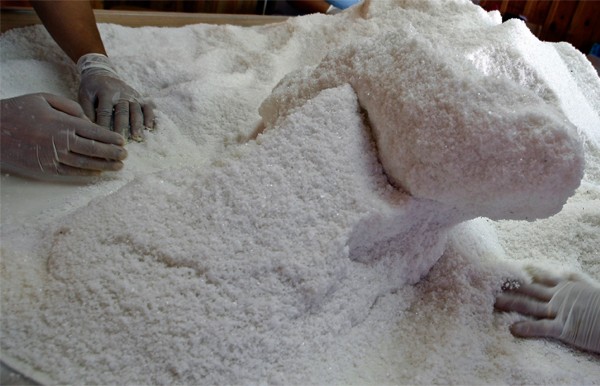A team of archaeologists discovered salt-processing sites dating back to 800 years in the city of Da'an in Northeast China's Jilin Province, according to the provincial government's website.
The team, from Jilin University's archaeology center and the province's Relics and Archaeology Institute, found five pits used in breaking up salty soil and purifying brine as well as stove sites and firewood at the city's Yin Jiawobu site.
Believed to be the oldest salt production sites of their kind, the discoveries corroborate hypotheses that the Liao and Kin dynasties (1115-1234) introduced innovations in salt processing in Northeast China.
"It's a strong evidence of a processing technology that existed in the Liao and Kin and speaks to us as a historical account of the salt industry in Northeast China," said Liu Xiaoxi, an archaeologist at the institute.
The research team worked on the site from June to August this year, looking for clues as to the way the people living in the area during the period loaded soil into the fire pit and then boiled a mixture of salt and water to yield salt when the water had evaporated.
Scientists have said that the process used during the period was employed until as recent as the 1960s.
"This is an amazing finding in Northeast China and we'll continue to dig at the site and do more research on the salt extraction method," said Shi Baolin, team leader of the research team.
Tools for salt making and pottery for preserving, however, were not found on the site, according to the team.



























